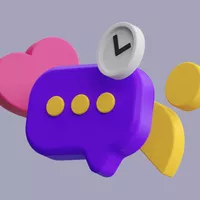22. The Loose Button
|solta|
22. Der lockere Knopf
22. El botón suelto
22.ルーズ・ボタン
22. O botão solto
22. Свободная пуговица
22. Ґудзик, що розстібнувся
22.松动的按钮
22.鬆動的按鈕
George wore a pair of blue shorts around the house.
||||||短パン|||家の中
||||||bermuda|||
George llevaba unos pantalones cortos azules por casa.
O George usava um par de calções azuis em casa.
Джордж носил по дому пару синих шорт.
George evin etrafında mavi bir şort giyiyordu.
Джордж носив пару синіх шортів по дому.
They were old, faded, and ugly, but they were comfortable.
|||色あせた||||||
Eran viejos, descoloridos y feos, pero eran cómodos.
Они были старые, выцветшие и уродливые, но в них было удобно.
Eski, soluk ve çirkinlerdi ama rahatlardı.
Вони були старі, вицвілі та потворні, але в них було зручно.
And when you are at home, you want to be comfortable.
Y cuando estás en casa, quieres estar cómodo.
А коли ти вдома, то хочеться, щоб тобі було комфортно.
It wouldn't be called "Home, Sweet Home" if you didn't feel comfortable there.
|||||||||didn't|||
No se llamaría "Hogar, dulce hogar" si no te sintieras a gusto allí.
そこが快適でなければ、「ホーム、スイートホーム」とは呼ばれないだろう。
Он не назывался бы "Дом, милый дом", если бы вы не чувствовали себя там комфортно.
Orada kendinizi rahat hissetmeseydiniz adı "Evim, Güzel Evim" olmazdı.
Він не називався б "Дім, милий дім", якби вам там не було комфортно.
But when he put on his blue shorts one morning, the button was just hanging on by a thread.
|||||||||||زر|||||||
||||||||||||||ぶら下がっていた||||糸
||||||||||||||||||um fio
Pero cuando una mañana se puso los calzoncillos azules, el botón pendía de un hilo.
しかし、彼がある朝青いショーツを履いたとき、そのボタンは糸一本でぶら下がっているだけだった。
Mas, uma manhã, quando vestiu os calções azuis, o botão estava por um fio.
Ama bir sabah mavi şortunu giydiğinde, düğme pamuk ipliğine bağlıydı.
Але коли одного ранку він одягнув свої сині шорти, ґудзик просто висів на волосині.
That single button was the only thing that held his shorts up.
||||||||||shorts|
Ese único botón era lo único que sostenía sus calzoncillos.
その唯一のボタンが、彼のショーツを支えている唯一のものだった。
Aquele único botão era a única coisa que mantinha os calções para cima.
Şortunu yukarıda tutan tek şey o tek düğmeydi.
Цей єдиний ґудзик був єдиним, що тримало його шорти.
George could do two things.
George podría hacer dos cosas.
George iki şey yapabilir.
Джордж міг робити дві речі.
He could wait until the button fell off.
Podía esperar a que se cayera el botón.
Ele podia esperar até que o botão caísse.
Düğme düşene kadar bekleyebilirdi.
Він міг почекати, поки кнопка відпаде.
When that happened, it would probably roll under the sofa and be lost forever.
||||||rolar|||||||
Cuando eso ocurriera, probablemente rodaría bajo el sofá y se perdería para siempre.
そうなったら、多分ソファの下に転がり込んで永遠に失われてしまうだろう。
Bu olduğunda, muhtemelen kanepenin altına yuvarlanacak ve sonsuza dek kaybolacaktı.
Коли це траплялося, вона, ймовірно, закочувалася під диван і губилася назавжди.
Or, he could sew the button on securely before it fell off.
|||||||しっかりと||||
|||||||de forma segura||||
O podía coser bien el botón antes de que se cayera.
あるいは、ボタンが落ちる前にしっかりと縫い付けることができる。
Ya da düğmeyi düşmeden önce sıkıca dikebilirdi.
Або ж він міг надійно пришити ґудзик, перш ніж він відпаде.
He found his sewing kit.
||||estojo de costura
Encontró su costurero.
彼は自分の裁縫キットを見つけた。
Dikiş setini buldu.
Він знайшов свій швейний набір.
He threaded the needle and tied a knot at the end of the thread.
|||agulha||||nó||||||
Enhebró la aguja e hizo un nudo en el extremo del hilo.
彼は針に糸を通し、糸の端で結び目を作った。
İğneyi geçirdi ve ipliğin ucuna bir düğüm attı.
Втягнув нитку в голку і зав’язав на кінці нитки вузлик.
Then he started the needle through the cloth.
|||||||tecido
Luego empezó a atravesar la tela con la aguja.
それから彼は針を布の中に通し始めた。
Sonra iğneyi kumaşın içinden geçirmeye başladı.
Потім він встав голку в тканину.
He directed it through one of the holes in the button.
|指示した|||||||||
La dirigió a través de uno de los agujeros del botón.
彼はそれをボタンの穴の一つに通した。
Düğmedeki deliklerden birine doğru yönlendirdi.
Він спрямував його через один з отворів у ґудзику.
Then he reversed direction.
||方向|
Luego invirtió la dirección.
それから彼は方向を反転させた。
Sonra yönünü değiştirdi.
Потім він змінив напрямок.
He put the needle back through a different hole, and then through the cloth again.
Volvió a pasar la aguja por otro agujero y luego por la tela.
彼は針を別の穴に戻し、再び布を通した。
İğneyi başka bir delikten geçirdi ve sonra tekrar kumaşın içinden geçirdi.
Він просунув голку назад через інший отвір, а потім знову через тканину.
He repeated this motion through all four button holes until the button was tight.
|||movimento||||||||||
Repitió este movimiento por los cuatro ojales hasta que el botón quedó apretado.
彼はボタンがしっかりと締まるまで、この動作をすべての四つのボタン穴を通して繰り返した。
Düğme sıkılaşana kadar bu hareketi dört düğme deliğinin hepsinde tekrarladı.
Він повторив цей рух через усі чотири отвори для ґудзиків, доки ґудзик не затягнувся.
Then he tied a bunch of knots in the last bit of thread and snipped off the excess thread.
||||||||||||||||le||
|er|||||||||||||||||
||||||||||||||snipped||||
||結んだ||||||||||||切った||||
||||||nós||||||||cortou|||excesso de|
Luego hizo varios nudos en el último trozo de hilo y cortó el sobrante.
Sonra ipliğin son parçasına bir sürü düğüm attı ve fazla ipliği kesti.
Потім він зав'язав кілька вузликів на останньому шматку нитки і обрізав зайву нитку.
He put on the shorts and buttoned the button.
||||||ボタンを留めた||
||||||abotoou||
Se puso los pantalones cortos y se abrochó el botón.
Şortunu giydi ve düğmesini ilikledi.
Він одягнув шорти і застебнув ґудзик.
It was strong.
Era fuerte.
Він був сильним.
Good for another ten years, he smiled to himself.
Bien por otros diez años, sonrió para sí.
あと10年は大丈夫だ、彼は自分に微笑んだ。
Ще років на десять, - посміхнувся він сам до себе.

